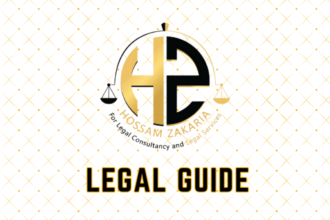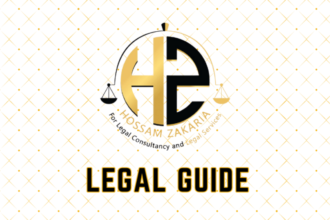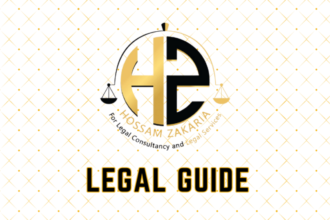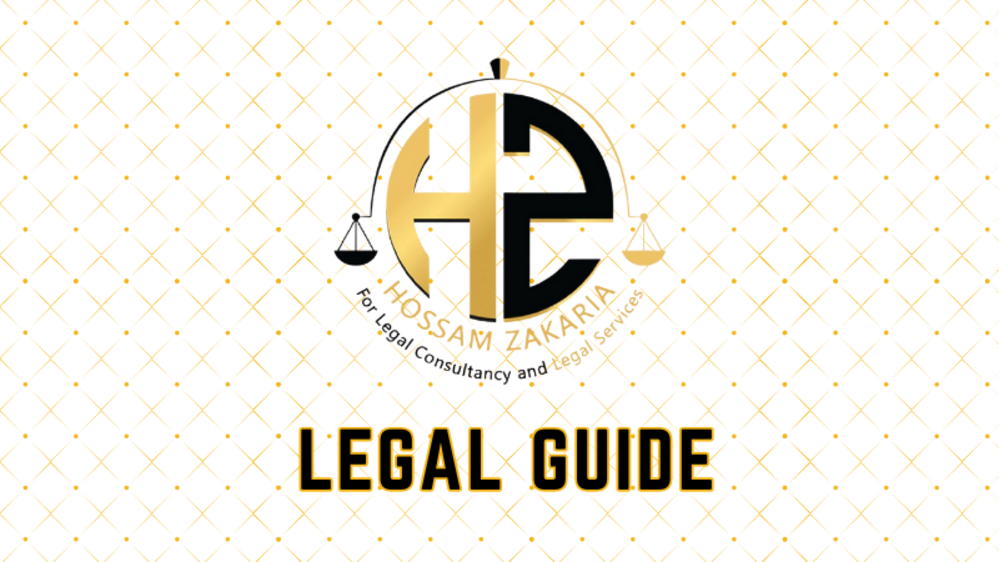Introduction: The Strategic Importance of Qatar Aviation Regulations for UAE Stakeholders
The rapid evolution of aviation laws across the Gulf Cooperation Council (GCC) has dramatically heightened the importance of understanding cross-border regulatory frameworks. For UAE-based businesses and legal practitioners engaged in aviation, travel, logistics, and related sectors, Qatar’s aviation regulations present both opportunity and complexity. Recent years have witnessed significant legal reforms, driving greater harmonization while introducing unique compliance obligations within Qatar’s borders. This article delivers a comprehensive, consultancy-grade analysis of key Qatari aviation laws and regulatory developments, with tailored insights for UAE executives, general counsel, HR managers, and legal professionals. Our objective is to empower UAE stakeholders with actionable knowledge—anchored in official sources—to mitigate risk, seize business opportunities, and ensure seamless legal compliance in transnational operations. The analysis is particularly relevant amid new economic partnerships and regulatory updates anticipated in 2025, where the intersection of UAE and Qatari law will define the region’s business landscape.
Table of Contents
- Legal Framework Overview: Understanding Qatar’s Aviation Regulatory Landscape
- Key Legal Provisions: Core Statutes and Their Implications
- Comparative Analysis: Old and New Laws in Qatar’s Aviation Sector
- Practical Impacts for UAE Businesses
- Regulatory Enforcement and Compliance Strategies
- Real-World Applications: Case Studies and Hypotheticals
- Risk Management and Penalties: What UAE Stakeholders Must Know
- Conclusion: Positioning for the Future
Legal Framework Overview: Understanding Qatar’s Aviation Regulatory Landscape
Qatar’s Aviation Law in Context
Qatar’s commitment to developing a robust and modern aviation sector is underpinned by a comprehensive legal framework that governs all facets of civil aviation. The primary statute, Law No. 15 of 2002 on Civil Aviation (“Qatar Civil Aviation Law”), serves as the foundation for the regulation of aircraft operations, airspace management, operator licensing, safety standards, carrier liability, and the rights of passengers. The law is implemented and enforced by the Qatar Civil Aviation Authority (QCAA), which also issues subordinate regulations, circulars, and technical standards.
Related Qatar laws and official sources:
- Qatar Civil Aviation Law No. 15 of 2002
- QCAA Resolutions, including Resolution No. 6 of 2006 (Air Navigation Service), Resolution No. 4 of 2019 (Safety Management Systems), and recent COVID-19 aviation protocols
- International conventions adopted by Qatar, e.g. the Chicago Convention on International Civil Aviation (1944)
This legal architecture is complemented by Qatar’s ratified bilateral air service agreements—most notably with the UAE—enabling regulated collaboration and market access.
Why Understanding Qatari Aviation Regulations Matters for UAE Businesses
UAE-based airlines, logistics providers, aircraft lessors, travel companies, and their legal advisors increasingly interact with Qatari systems. Whether entering code-sharing agreements, conducting flights to Doha, or hiring locally, UAE enterprises must ensure full compliance with Qatari aviation rules to avoid legal disputes, operational delays, or reputational harm. Additionally, the rapid pace of updates—especially in areas such as digital ticketing, environmental compliance, and passenger rights—calls for proactive legal monitoring. Recent examples, like Qatar’s expansion of Hamad International Airport and the post-2023 restoration of GCC air corridors, further underscore the importance.
Key Legal Provisions: Core Statutes and Their Implications
1. Aircraft Registration and Airworthiness
Qatari law requires that all aircraft operated within its airspace be registered with the QCAA, as prescribed in Articles 5–15 of Law No. 15/2002. The QCAA maintains a comprehensive aircraft register and issues certificates of airworthiness in line with ICAO Annex 8 standards. For UAE operators entering the Qatari market, dual compliance is mandatory: Aircraft registered in the UAE must also meet Qatari airworthiness and operational requirements to operate in Qatar under bilateral permit arrangements.
Consultancy Insight: UAE businesses must ensure that wet and dry leased aircraft comply with both UAE GCAA and QCAA airworthiness directives. Any modifications, particularly concerning safety equipment or cabin configuration, must be approved by the QCAA prior to operation in Qatar. Engaging in cross-jurisdictional lease agreements without updated technical files or records has led to regulatory penalties in recent years.
2. Operator Licensing and Safety Management
Qatar’s operator licensing regime is set out under QCAA’s regulatory guidelines and Law No. 15/2002 (Chapters 4–6). Operators—including UAE airlines—must hold an Air Operator Certificate (AOC) recognised by both home and host authorities. Introduction of Resolution No. 4 of 2019 mandates robust Safety Management Systems (SMS) for all commercial operators, requiring demonstration of risk management, incident reporting, and continuous safety training. Failure to implement an SMS, or submitting incomplete documentation, can result in suspension of operating rights.
3. Passenger Rights and Carrier Liability
Qatar’s adherence to the Montreal Convention and relevant local statutes has reshaped the legal relationship between air carriers and passengers. Key provisions stipulate compensation formulas for delay, baggage loss, and passenger injury/death. Law No. 15/2002, Articles 78–85, further establishes strict liability caps and procedural requirements for handling passenger claims.
4. Airspace Rights and Flight Permits
The QCAA regulates flight permissions, requiring all foreign carriers—including those from the UAE—to apply for traffic rights, slot allocation, and overflight/transit permits according to operational schedules and bilateral agreement terms. Post-2023 GCC airspace normalization has streamlined permit processes, but failure to secure approvals in advance still carries severe consequences, such as detainment or heavy fines.
Table: Key Provisions Under Qatar Civil Aviation Law
| Area of Regulation | Relevant Article/Resolution | Key Requirement |
|---|---|---|
| Aircraft Registration | Law No. 15/2002, Art. 5–15 | Aircraft must be registered in Qatar to operate domestically. |
| Airworthiness | ICAO Annex 8 / QCAA Circulars | Certificates required prior to operation; must meet ICAO standards. |
| Operator Licensing | Law No. 15/2002, Ch. 4–6 | AOC recognition and SMS implementation required. |
| Passenger Rights | Law No. 15/2002, Art. 78–85 | Compensation and strict liability for delays, injury, baggage loss. |
| Flight Permits | QCAA Permit Guidelines | Advance application for Qatari airspace and airport access. |
Comparative Analysis: Old and New Laws in Qatar’s Aviation Sector
As regulatory standards evolve, it is vital for UAE legal practitioners and business leaders to understand how past regulations compare to modern mandates—especially when adjusting legacy contracts or defending against claims based on outdated understandings.
Table: Comparison of Previous vs. Current Qatari Aviation Laws
| Area | Pre-2010 Regime | Current Law/Regulation |
|---|---|---|
| Aircraft Registration | Manual records; limited bilateral recognition. | Digital registry; streamlined GCC recognition processes. |
| Operator Licensing | No formal SMS requirement; paper-based audits. | Mandatory Safety Management Systems (Resolution No. 4/2019); digital compliance reporting. |
| Passenger Rights | Baggage/Personal Injury compensation based on Warsaw regime. | Capped and increased liability under Montreal Convention / Law No. 15/2002. |
| Sanctions and Penalties | Minor monetary fines; weak enforcement. | Significantly increased fines, operational suspensions, mandatory remediation plans. |
Practical Impact
This evolution has substantially raised the bar for compliance and risk management. UAE businesses must update internal policies, insurance coverage, and contract templates to reflect new, more stringent requirements operative in Qatar from 2019 onwards, especially regarding safety and consumer compensation.
Practical Impacts for UAE Businesses
A. Cross-Border Code-Sharing and Alliances
Strategic alliances between UAE and Qatari carriers create operational synergies but raise intricate legal considerations. Any code-sharing agreement covering flights between the UAE and Qatar must be drafted with dual compliance in mind—integrating Qatari consumer protection rules, crew licensing, and incident reporting requirements alongside UAE Federal Decree-Law No. 20 of 2021 on the Regulation of Civil Aviation. Legal due diligence is mandatory before entering joint ventures, ensuring that liability allocation, dispute resolution, and insurance terms are explicitly compliant with both legal systems.
B. Corporate Travel, Immigration, and Employment
UAE companies organizing business travel to or via Qatar must ensure that employee travel arrangements, ticketing terms, and data privacy policies adhere to Qatari standards. For instance, QCAA’s privacy guidelines for passenger data necessitate that UAE travel managers revise data processing agreements. Employment contracts need to include terms addressing compliance with both UAE and Qatar aviation safety regulations if staff are tasked with cross-jurisdictional pilot or ground crew roles.
C. Cargo and Logistics Transactions
For UAE logistics providers and cargo operators, Qatar enforces specific customs, transit, and security protocols under the Qatari Customs Law and QCAA cargo regulations. Prior incidents of delayed hazardous goods clearances between Jebel Ali and Hamad International have triggered stricter documentation rules, with QCAA refusing landing rights for incomplete manifests. UAE companies must institute rigorous cargo documentation and regulatory review processes to avoid costly blocks or fines.
Regulatory Enforcement and Compliance Strategies
A. Enforcement Mechanisms and Penalties
The QCAA exercises robust supervisory powers, backed by statutorily increased penalties since 2016. Non-compliance risks include:
- Administrative fines of up to QAR 500,000 per violation for aircraft safety, maintenance, or documentation breaches
- Immediate suspension or revocation of operating permits and route access
- Public disclosure of infringements impacting reputation and market access
- Civil claims by affected passengers or counterparties under local law
In serious cases—such as operating unregistered aircraft or failing to implement SMS—company executives and nominated postholders could face personal liability under Qatari law.
Table: Penalties Comparison for Core Aviation Infringements
| Violation Type | Penalty Pre-2016 | Penalty Post-2016 (Current Law) |
|---|---|---|
| Operating Unregistered Aircraft | QAR 50,000–100,000 | QAR 250,000–500,000; possible suspension |
| Lack of SMS | Warning/Advisory | QAR 100,000–300,000; mandatory corrective action |
| Failure to Compensate Passengers | Up to QAR 10,000 per claim | Mandatory compensation + QAR 50,000–150,000 fine |
B. Recommended Compliance Strategies for UAE Organizations
- Establish robust legal monitoring to track updates from the QCAA, UAE GCAA, and GCC General Secretariat
- Conduct regular audits of aircraft leasing, crew licensing, and operational policies for dual compliance
- Develop cross-border incident investigation protocols aligned with Qatari standards
- Draft tailored contract templates addressing jurisdiction, liability, consumer rights, and data processing clauses for Qatari transactions
- Invest in internal staff training—especially for HR and in-house counsel—on Qatari regulatory changes
- Assign regulatory compliance responsibility to GCC-wide legal or compliance officers
See suggested compliance checklist visual: A clear, step-by-step diagram illustrating the required procedures for UAE airlines initiating new Doha routes, including permit applications, safety certifications, legal reviews, and staff briefings.
Real-World Applications: Case Studies and Hypotheticals
Case Study 1: UAE Carrier’s Entry into Doha Market
Scenario: An Abu Dhabi-based airline plans to launch scheduled flights between the UAE and Qatar. Legal review identifies that, although the fleet is fully certified under UAE law, three aircraft lack updated Qatari airworthiness compliance certificates. The QCAA cancels several scheduled flights, citing non-compliance, and issues monetary penalties.
Consultancy Lesson: Dual certificate verification by both UAE GCAA and QCAA is essential prior to commencing commercial operations in Qatar.
Case Study 2: Consumer Rights Challenge
Scenario: A UAE travel agency books a group of passengers through a UAE-Qatar codeshare. A significant delay at Hamad International prompts affected passengers to seek compensation under the Montreal Convention, as codified in Qatari law. The UAE operator, initially referencing UAE statutes, faces additional Qatari compliance requirements, including higher compensation caps and written notice obligations.
Consultancy Lesson: Cross-border ticket sales and operation must be subject to rigorous review of both countries’ consumer protection and carrier liability frameworks.
Case Study 3: Cargo Compliance Pitfalls
Scenario: A Dubai-based logistics company’s shipment is denied entry at Hamad International due to lack of QCAA pre-clearance for hazardous goods, despite UAE customs approval. The company incurs demurrage charges and must re-export.
Consultancy Lesson: Qatari pre-clearance procedures must be treated as independent of UAE import/export processes. Dual compliance is mandatory for seamless cargo movement.
Risk Management and Penalties: What UAE Stakeholders Must Know
Failure to align with Qatari aviation regulations can result in legal exposure, business disruption, and reputational damage—risks that can be managed by adopting best practices and proactive legal oversight. Key risk mitigation measures include:
- Early engagement with Qatari legal advisors when structuring new aviation business lines involving Qatar
- Regular joint compliance workshops between UAE and Qatari compliance teams
- Thorough pre-transaction due diligence on local partners, especially for ground handling or code-sharing arrangements
- Scenario planning for incident management—e.g., how to handle consumer complaints or technical disruptions under Qatari law
Suggested Visual/Table: Compliance Checklist for UAE Businesses Operating Flights to Qatar
| Compliance Item | Legal Source | Status/Action Required |
|---|---|---|
| Aircraft Registration Verification | Law No. 15/2002, Art. 5–15 | Obtain QCAA registration or bilateral approval |
| Safety Management System in Place | Resolution No. 4/2019 | Annual review and training certification required |
| Passenger Liability Insurance Terms Updated | Montreal Convention / Law No. 15/2002, Art. 78–85 | Review insurance policies for new compensation caps |
| Flight Permit Issued | QCAA Flight Permit Guidelines | Submission of seasonal flight schedule and approval from QCAA |
| Staff Legal Training Completed | Internal HR/Legal | Staff participation in compliance workshop documented |
Conclusion: Positioning for the Future
Qatar’s modernized aviation regulatory infrastructure has introduced new challenges and opportunities for UAE businesses and practitioners. The direction of reform points to greater stringency, heightened enforcement, and continued harmonization with international standards, notably in safety, data protection, and passenger rights. As the region’s aviation sector accelerates into 2025 and beyond—fueled by cross-GCC economic initiatives and new air corridor agreements—legal compliance across both UAE and Qatari regimes will become a core determinant of business agility, risk management, and corporate reputation.
Best practice for UAE organizations: Proactively audit all operational and legal interfaces with Qatar, update contracts, and institute regular compliance training. Engage with trusted legal advisors who can provide dual-jurisdictional guidance and monitor regulatory developments via official UAE and Qatari government channels. Only by embedding these practices can UAE stakeholders confidently navigate the evolving landscape and unlock sustainable value within the GCC aviation ecosystem.
For personalized legal advice on Qatari aviation law, or for support in managing compliance strategies for UAE-based aviation ventures, please contact our expert team today.



